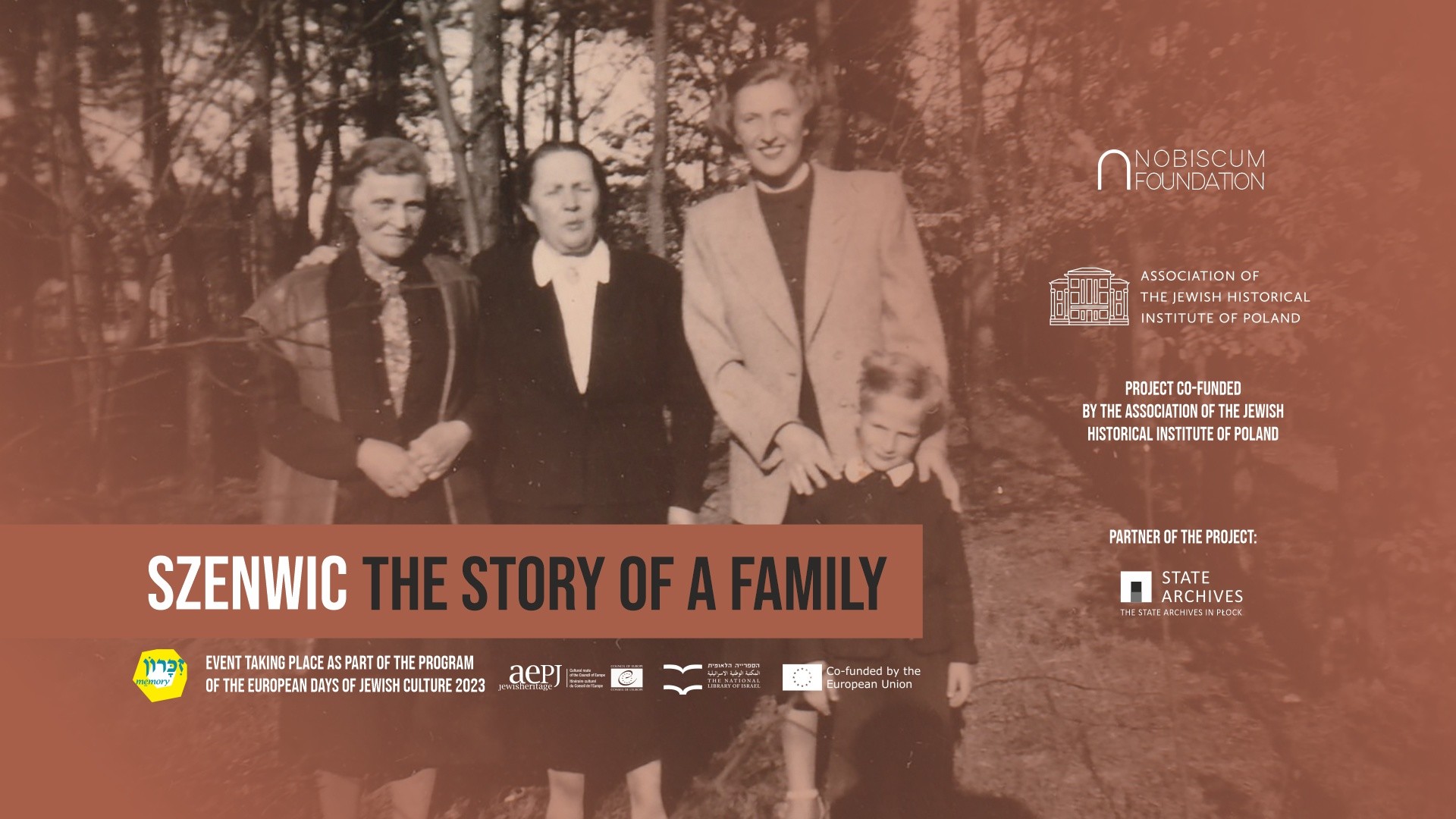After the outbreak of World War II, when the Germans occupied Włocławek, the Wolman family left the town and went to Warsaw. They ended up in the ghetto, where in the summer of 1942 Wincenty Wolman was murdered during the great deportation action. His wife, Ryfka Regina, using the name Barbara Olszewska during the war, together with her daughter Emilia (Zofia) (1923-2015) managed to get out of the ghetto to the “Aryan” side. They managed to reach Dębica and found shelter in the house of Tomasz and Henryka Kuroś, who lived in Włocławek before the war. Tomasz Kuroś was the manager and partner of a Jewish porcelain factory, and the Wolmans were their neighbors and close friends. In Dębica, Tomasz Kuroś was the manager of the local bakery and brickyard that belonged to his family.
Barbara and Emilia went by train to Dębica. Henryka took them to her house on the outskirts of the town and arranged a room for them in the attic. During her stay with the Kuroś family, Barbara took care of their daughters: 4-year-old Krysia and 11-year-old Ludwika. Emilia’s fiancé, also of Jewish descent, joined her. Unfortunately, his appearance betrayed his origin, which did not go unnoticed by the local residents. In the fall of 1943, the Kuroś family were warned that their neighbors had realized that they were hiding Jews. As a result, Barbara and Emilia had to leave and look for another hiding place. The Kuroś family gave them food and money for the journey. For their heroic attitude during the war, helping many people, especially those of Jewish descent, delivering food and clothes to the camp in Pustków, they were presented with the Righteous Among the Nations award by the Yad Vashem in 2002.
Escaping from Dębica, Barbara and her daughter boarded the first train that arrived. That’s how they found their way to Ostrowiec Świętokrzyski. On the train, Emilia met her future husband Michał Witwicki, who worked in a machine factory. He came from the vicinity of Lviv, from the village of Witwica. Michał offered to help Emilia and her mother. Having “a good look” and knowing perfect German, Emilia took a job in the German administration.
Regina and Emilia then went to Warsaw. Both took part in the Warsaw Uprising, in the Home Army group “Chrobry II”. The “Chrobry II” group was established on August 1, 1944 in Warsaw, from various units, initially as several companies and independent units, then as two battalions. The group fought in the western part of the northern-central city, between Towarowa Street from the west, Aleje Jerozolimskie from the south, Sosnowa Street from the east and Łucka and Ceglana Streets from the north. On September 20, the group became part of the 15th “Wilki” Infantry Regiment of the Home Army as the 1st and 2nd battalions.
In November 1944, Regina and Emilia ended up in the German POW camp Stalag VI C Oberlangen, together with other Polish women, non-commissioned officers and privates from the Warsaw Uprising.
Doctor Barbara Olszewska […] served as a social physician during the Warsaw Uprising in the Chrobry II group, and then in the Oberlangen POW camp, and after liberation in Niederlangen and Haren/Ems in 1946-47, until her return to the country. Thanks to her extremely devoted and truly civic attitude, Dr. Barbara Olszewska gained universal recognition. She treated insurgents and civilians, then prisoners of war and former prisoners of concentration camps, never refusing to help anyone. Always at her medical station, selfless and full of devotion, among her camp comrades she was noted not only as a great doctor, but also as a person rushing to help those in need, supporting others in the most critical and hardest moments.
After the war, Barbara Olszewska continued to work as a dentist. Her daughter, Emilia Witwicka, took up literature. She was professionally associated with the National Publishing Institute, as editorial manager. She was a recognized translator of Czech and Slovak literature, her translation work includes ”Krakatit” and ”Letters from England” by Karel Čapek and the novel ”The Joke” by Milan Kundera. She has been awarded many times for her work, e.g. with the Literary Award for ZAiKS Translators. She also translated scripts for film and television.
Barbara Olszewska died in 1974. She is buried with her daughter and grandson at the Northern Cemetery in Warsaw.
















